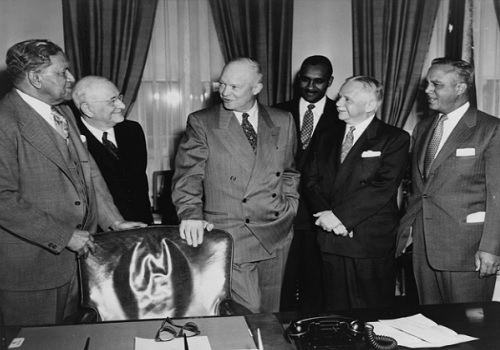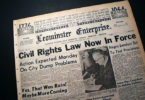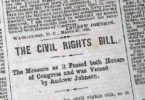
On September 9, 1957, President Dwight D. Eisenhower signed into law the Civil Rights Act of 1957.
The Civil Rights Act of 1957 was signed into law by President Dwight D. Eisenhower on September 9, 1957 and was originally proposed by Attorney General Hebert Brownell. This Act was the first legislative civil rights action since the Civil Rights Act of 1875 during the Reconstruction period. It took 82 years for the federal government to commit to the cause of civil rights.
The Act did not create new rights but established:
- Protection of voting rights set out in the Fifteenth Amendment of the United States Constitution.
- The Civil Rights Division in the Department of Justice empowering federal prosecutors to obtain court injunctions against interference with the right to vote.
- A Civil Rights Commission within the executive branch with the authority to investigate discriminatory conditions and to recommend corrective measures.
The purpose of the bill was to increase the number of registered black voters in the South since only 20% were registered with lower numbers in communities in the Deep South.
Even though some civil rights activist were not convinced about the efficacy of the Act, it was a stepping stone for more legislative action to come such as the Civil Rights Act of 1960 which strengthened voter registration rights and the Civil Rights Act of 1964 which banned discrimination by businesses, public places and schools.






